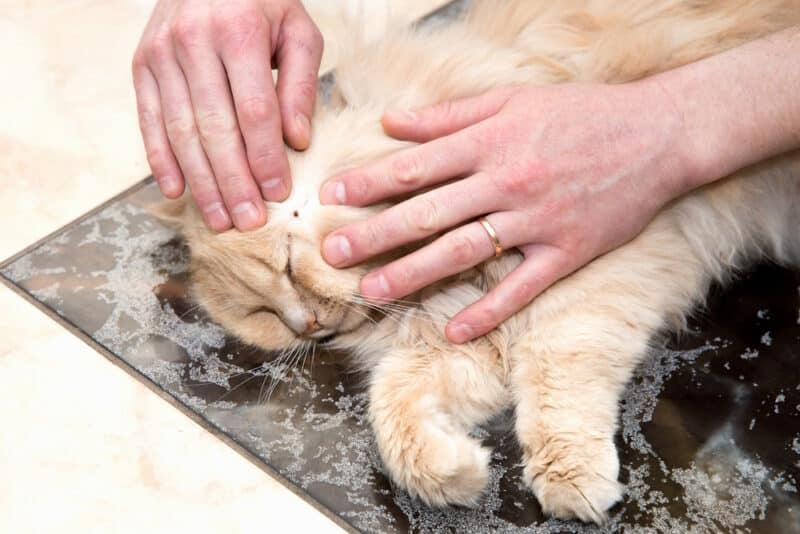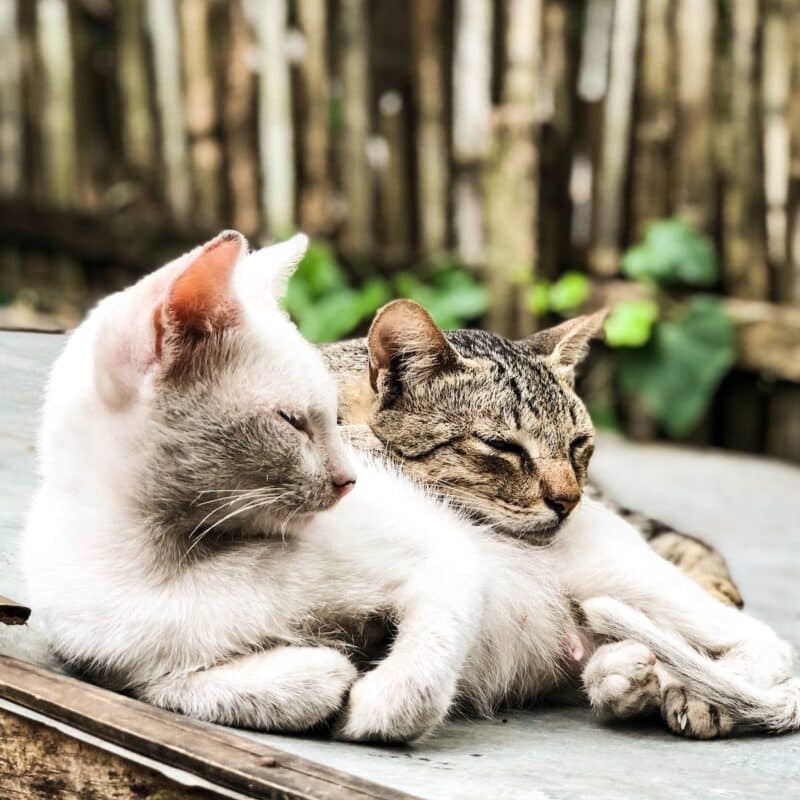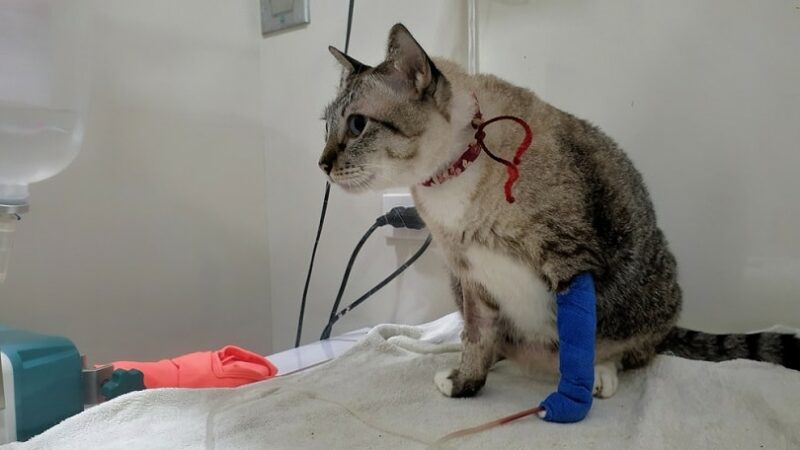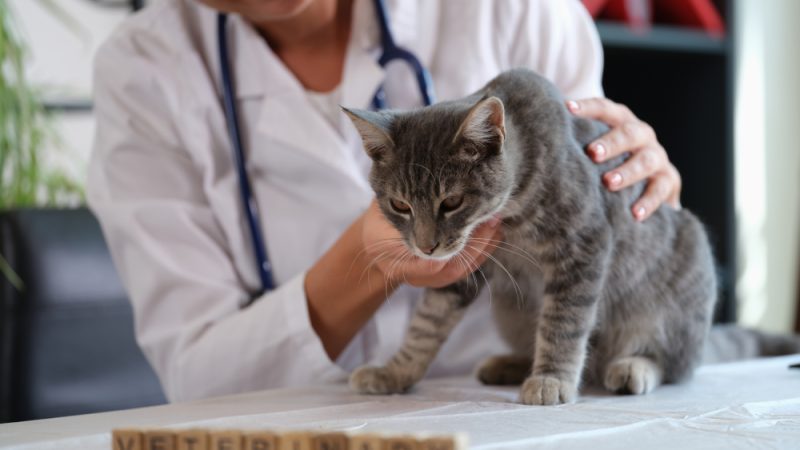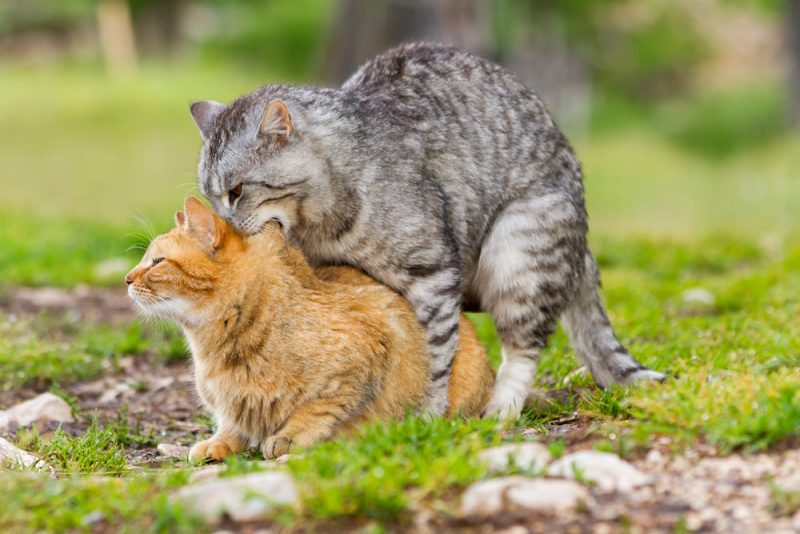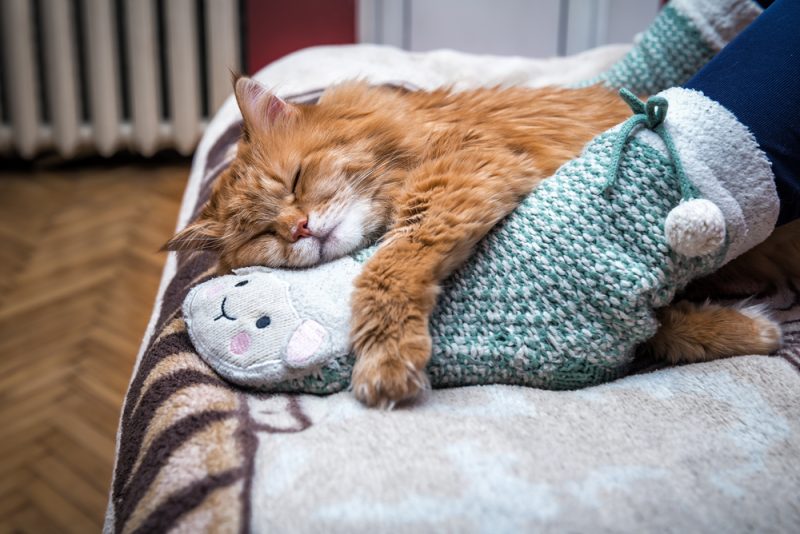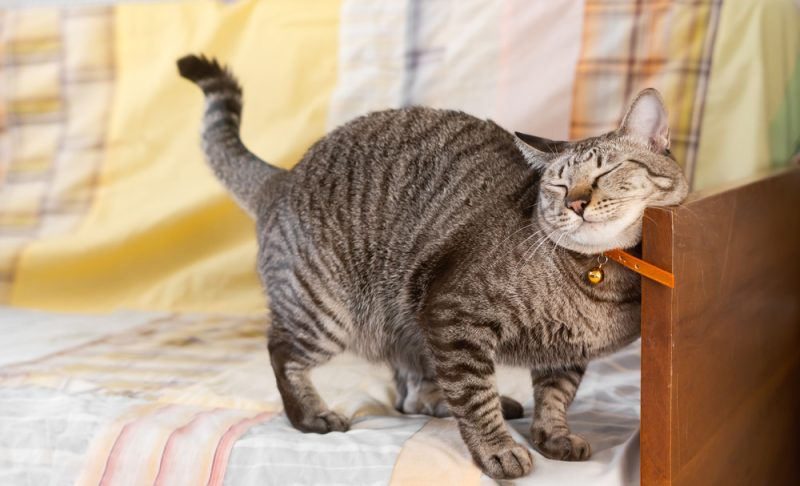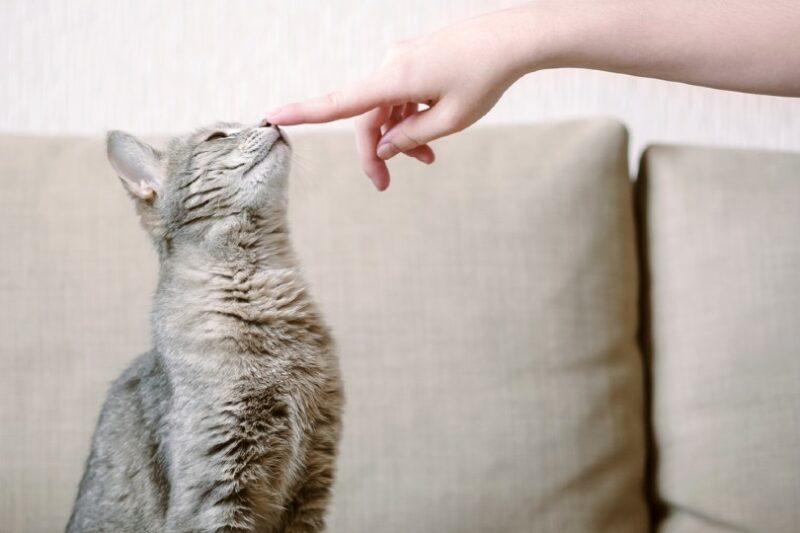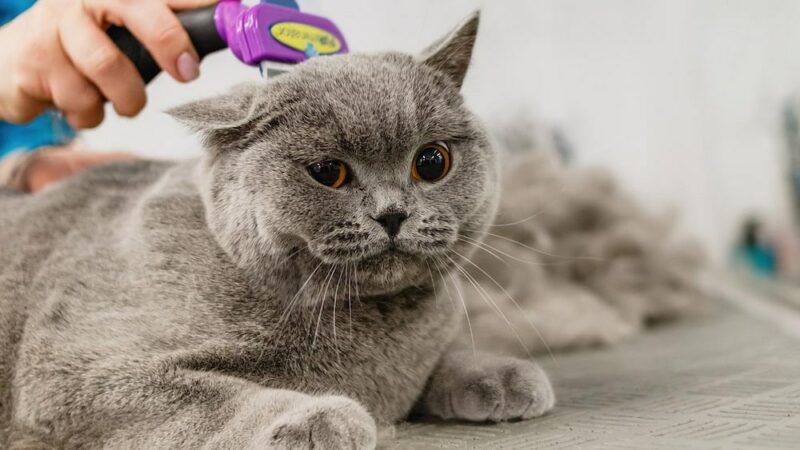In this article
Few people out there enjoy bugs crawling all over them, let alone all over their new kitten. Rather than treat the problem, it’s always best to prevent it from happening in the first place, which is often easier said than done. This can be especially true when it comes to kittens, as these fragile felines can’t always use the same treatments as their hardier adult counterparts. With this in mind, we’re here to help you learn new ways to protect your furry baby from nasty bugs, including fleas, ticks, and mosquitos.

What Harm Can Bugs Do to Kittens?
If you don’t know the reason that your kitten needs protection from things that are so tiny, here’s why: Bugs can spread disease, which can be a problem in any cat, but it’s a big problem in kittens. Fleas, ticks, and mosquitoes are vectors for bacterial diseases and internal parasites, and they can cause skin disease. A tiny kitten with a major infestation of blood-sucking bugs can lose a serious amount of blood quickly.

How to Protect Your Kitten From Nasty Bugs
Here are a few things that you can try to keep your kitty safe from creepy crawlers.
1. Use Preventative Medications
Preventative medications are those that you give your kitten on a regular basis to keep them from getting an infestation. Most work by killing the bugs that bite them. The most common preventative meds will help keep your kitten flea free, while some will take care of ticks too.
Mosquitoes are a bit of a different story; rather than repel the bug, the medicine just helps prevent a common problem with mosquito bites: heartworm. Speak to your veterinarian if you’re interested in using a cat-safe bug spray to help repel insects to get the safest option.
Preventative medications for bugs in kittens are typically given orally or topically every 30 days, preferably year-round. Be sure to speak to your veterinarian for safe recommendations. The major downside is that kittens have to be 8 weeks old or older.
- Help prevent infestations with monthly applications
- High efficacy when used properly
- Can’t be used on kittens younger than 8 weeks
- Can be expensive
2. Treat Your Other Pets
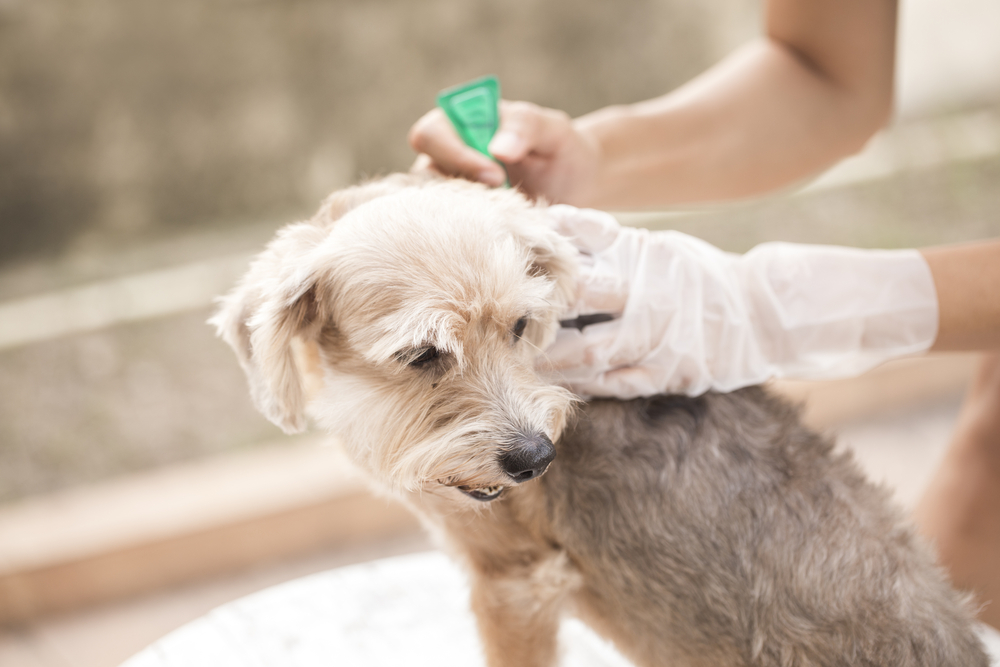
When it comes to bugs, pets love to share. Even if your kitten never ventures a foot outside, any other pets that do can bring bugs in with them. So, if you have another member in your fur family, make sure they’re on preventative medications, especially if your kitten is under 8 weeks old. With preventative medications, you’re helping to give every pet bug-proof armor so they’ll be less likely to bring your kitten a nasty gift.
- Every pet in your household will be more protected against bugs.
- Your young kitten may have a lesser chance of picking up bugs from their buddies.
- The monthly preventatives for everyone can get expensive.
- You’ll need to remember to give medications every month.
3. Keep Your Home Clean
Most of the creepy crawlies that your kitten needs to worry about like to hide, even when they’re not on a warm body. This makes crevices in your couch, your carpet, and other dark areas prime places for these critters to wait in ambush of your fur baby. Frequent cleaning of these areas can help reduce the chances of attack by simply getting rid of the attackers. Regularly vacuuming carpets, drapes, and furniture, frequent bed washing, and repairing torn screens will all help cut down on bugs that may be lurking around your home.
- Inexpensive
- Helps protect all animals in the household
- Can be a huge time commitment
4. Keep Your Yard Tidy

Keeping your yard in tip-top shape can deter the number of bugs that your kitten comes in contact with. Most pesky bugs gravitate toward dark, cool, damp places, making last fall’s leaf pile quite enticing. They may also hunt out tall grasses, overgrown bushes, and garbage cans. Keeping things neat and trim cuts back on these hidey holes. Picking up animal feces, getting rid of standing water, and washing your recycling bin may also help.
- Can help reduce mosquitoes for humans’ benefit
- Inexpensive, mostly just labor and time
- Can be a huge time commitment
5. Time It Just Right
Since there aren’t great options for mosquito repellent to use on your kitten, your best bet may be to avoid them entirely. Patching up window screens and using screen doors can help keep them out of your house, but if your kitten looks forward to a little outdoor adventure, your household screens aren’t going to help. Instead, you may choose to avoid letting your kitten outside during the early morning and early evening hours, when mosquitos are at their busiest. This will still let your feline friend soak up the sights and sounds with less exposure to the buzzing and biting.
- Inexpensive
- Won’t keep bugs out of your home
6. Check Early and Often

There is no bug prevention solution that is 100% effective. Implementing the aforementioned options should drastically cut down on your kitten’s exposure to bugs, but there’s still a chance that they could get an infestation. That makes regularly checking your kitten for bugs a great idea. This can be done anytime, anywhere; you just need to part the hair and get a good look at the skin in multiple areas of the body. Ideal places to check are right above the tail, the ears, the groin, and the armpits. Using a flea comb over your kitten’s back can also help weed out bugs.
Speak to your vet for advice on what products you’re looking for and where best to find them. If you find something on your own, contact your veterinarian for the best treatment methods, depending on your kitten’s age.
If you need to speak with a vet but can't get to one, head over to PangoVet. It's an online service where you can talk to a vet online and get the advice you need for your pet — all at an affordable price!
- Easily done
- Can be a regular part of grooming
- Inexpensive
- Not really a preventative, so kittens may already be exposed to the potential diseases carried by these bugs

Should You Use Insecticides or Bug Repellents in Your Home or Yard to Protect Your Kitten?
Pets can be sensitive to the chemicals used to kill or repel insects, even those that are touted as safe for animals. Before you use any kind of insecticide or bug repellent, even a cat-safe bug spray, speak to your veterinarian to make sure it’s the safest and best route to keep bugs from getting to your kitten. The last thing that you want to do is make your kitten sick from something that’s supposed to help prevent them from getting sick.

How to Get Rid of Bugs on a Kitten
If your fur baby happens to find themselves bug hitchhikers despite your best efforts, there’s no need to panic. Instead, contact your veterinarian. They will help guide you through the treatment process, which will depend on your kitten’s age. For healthy babies older than 8 weeks, a preventative medication may be the best route. For those younger, frequent combing or bathing or using a cat-safe bug spray may be a better option.
Your veterinarian can also guide you through the process of treating the rest of your pets and getting your home and yard to be bug free.

Conclusion
Keeping those nasties off of your kitten is doable but may take effort, especially depending on your kitten’s age. It also involves debugging your other pets, home, and yard. Regular veterinary care should always be part of the equation, as your vet will be the best source of information for keeping your particular feline friend free from creepy crawlies.
Featured Image Credit: anastasiya parfenyuk, Shutterstock
